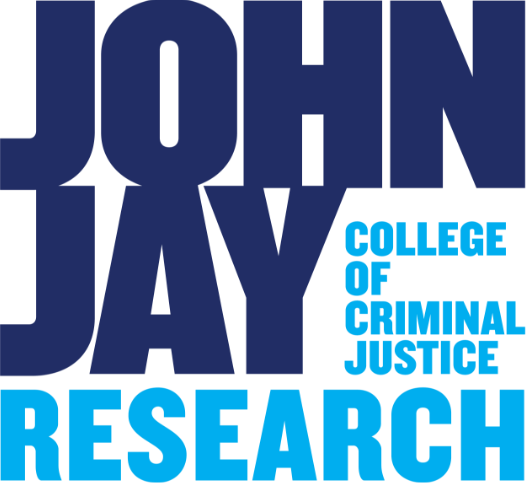Student Notes


Under the mentorship of Dr. Elizabeth Jeglic, Professor of Psychology at John Jay, Eliza served as a Primary Investigator (PI) on a study examining dominance in relationships, mainly focusing on authority, restrictiveness, disparagement, and intimate dominant behaviors. Through rigorous data collection and analysis, Eliza has uncovered intriguing findings that challenge the common understanding of dominance stereotypes and shed light on the nature of relationship dynamics in contemporary society.
“Our findings showed that men and women scored similarly on authority and restrictiveness, which was unexpected. This suggests that traditional roles in romantic relationships may be evolving, at least within the context of the West,” she explains. Their conclusions contradict earlier studies that suggested men are typically more authoritative or use overt aggression while women are more restrictive or use covert aggression.
Eliza hopes her research can be considered a building block for policies and practices related to sex relations and IPV, highlighting the importance of addressing smaller-scale issues in developing prevention and intervention strategies for IPV. “My research shows that it’s important to understand the root behaviors in relationships before tackling bigger issues like intimate partner violence. Understanding these dynamics can inform better prevention and intervention strategies,” she asserts.
Eliza was awarded a second-year OSRC Fellowship to continue her research. She has also received a grant from the Psi Chi International Honor Society, enabling her to complete a second wave of data collection on her ongoing project with Dr. Elizabeth Jeglic.
“Dr. Jeglic has been an incredible mentor, guiding me through every step of the research process. From navigating the IRB to presenting at conferences, her support has been invaluable,” Eliza reflects.
Eliza’s research interests are varied; during her undergraduate studies, she minored in film and published her paper, “The Wrath of The Wounded Woman,” in John Jay’s Finest (Volume 38). Working with Dr. Melinda Powers, Eliza explored the intersection of ancient tragedy and contemporary cinema, examining parallels between Euripides’s “Medea” and Lars von Trier’s 2009 film “Antichrist.” The paper, which originated as a final project for a film class, evolved into one of Eliza’s most cherished accomplishments. She examined the deconstruction of a grieving woman in both ancient and contemporary contexts, offering a dual perspective on timeless themes of tragedy and human suffering. Eliza’s analysis earned her the Edward P. Davenport Best English Paper Award, recognizing her exceptional scholarship and intellectual understanding.
Upon graduation, Eliza plans to continue her work in forensic psychology and film studies. She is excited to publish her findings in the Psi Chi Student Journal and to start a career as a psychotherapist focused on sexual psychopathology.
Andrew Vargas, a Toxicology major at John Jay College, is deeply committed to environmental justice and sustainability.
As a fellow with the Reducetarian Foundation, Andrew began to explore the complex connections between industrial agriculture, environmental justice, and global food systems. “It exposed me to so many different avenues within environmentalism that I did not know existed,” he says.
His research in the Mercury Lab at John Jay under the supervision of Dean of Research Dr. Anthony Carpi continues his exploration of the profound impacts of industrial agriculture, a sector that, according to the Food and Agriculture Organization (FAO), is responsible for a staggering 10% of global greenhouse gas emissions. Taking the lead on a project investigating mercury emissions from soil, Andrew aims to inform methods of remediating the harmful effects of pollutants like mercury, particularly those affecting marginalized communities, where they can cause neurological and developmental damage as well as other serious health issues. This project has already yielded important findings, such as the identification of specific genes in soil bacteria responsible for mercury emissions.
Andrew is also preparing for a future in academia; he aims to pursue a Ph.D. in environmental science. His current research as part of John Jay’s McNair Program focuses on “eco-emotions,” exploring how climate change and other environmental catastrophes impact mental health. “I really want to empower students to work through despair and hopelessness and build up a sense of hope,” he says.
Beyond research, Andrew has been active working with the Educated Choices Program, developing educational materials on food waste and environmental justice. He has also organized a screening of an impactful documentary, “The Smell of Money,” which highlights the effects of environmental racism on marginalized communities in North Carolina.
This fierce advocate for environmental justice has been supported by a network of mentors and advisors who have been instrumental in his success. Dr. Anthony Carpi’s mentorship has been key, providing guidance and encouragement throughout his research endeavors. “Dr. Carpi has helped me to realize that I am a researcher. He really tries to push me above and beyond,” Andrew says. His Macaulay advisor, Aisha Abdemula, has also offered invaluable support, helping him navigate the challenges of balancing his academic workload with his research and advocacy projects. “She has helped me to see myself better and give me the motivation that I need to continue.”
